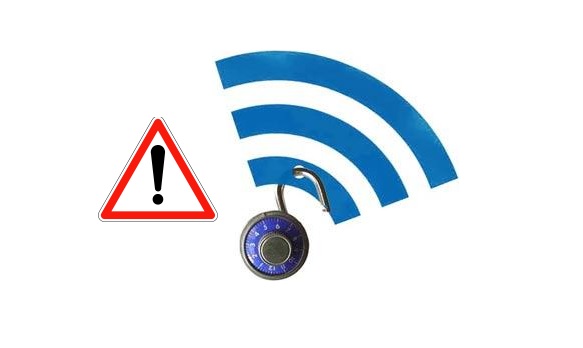Wi-Fi hotspots remain a major security risk with one in four lacking password protection or encryption leaving them ripe for hack attacks, according to Kaspersky.
The cyber security company analysed 31 million Wi-Fi hotspots around the world and discovered that every fourth hotspot, some 28 percent, is unsecured and poses a risk to the data of people connected to them.
Given many of these unencrypted hotspots are used for transferring all sorts of data such as personal messages, documents and passwords, that information is effectively waiting to be read and stolen by hackers lurking on the network.
Wi-Fi hotspot danger
![]() Kaspersky also found that an additional three percent of these networks make use of the Wired Equivalent Privacy (WEP) encryption, which is known to be an unreliable security protocol and can be cracked within a matter of minutes using readily available tools.
Kaspersky also found that an additional three percent of these networks make use of the Wired Equivalent Privacy (WEP) encryption, which is known to be an unreliable security protocol and can be cracked within a matter of minutes using readily available tools.
More reassuringly, around three quarters of Wi-Fi hotspots use the more reliable Wi-Fi Protected Access (WPA) protocol, through the strength of the WPA encryption depends on how it is configured.
Kaspersky’s data also found that the highest number of Wi-Fi hotspots lacking any or adequate security could be found in tourist destinations such as Thailand, France, Israel and the US, with travellers being the most vulnerable to Wi-Fi hackers as they are more likely to access the hotspot as it is probably their only means on internet access when abroad.
“We advise all users to remain vigilant when connecting to Wi-Fi. Don’t use hotspots without passwords and don’t use public hotspots to perform high-risk activities such as online banking or shopping, logging on to sites or for transferring confidential information,” said Denis Legezo, antivirus expert at Kaspersky Lab.
“If that sort of traffic is intercepted by a third party, it could result in serious losses, including financial ones. And of course, we strongly recommend using additional measures to protect traffic, such as VPN (Virtual Private Network) technology.”
Unsecure public Wi-Fi hotspots are nothing new, but Kaspersky’s research doe indicate that despite the numerous concerns over security when using such internet access points, there is still much to be done to curtail opportunistic hackers exploiting people’s desire to get easy access to the internet when out and about and abroad.
Given two thirds of [people cannot tell if a Wi-Fi hotspot is secure or not, the security risks weak or unsecure hotspot present are not likely to go away anytime soon.
How much do you know about Wi-Fi? Try our quiz!





